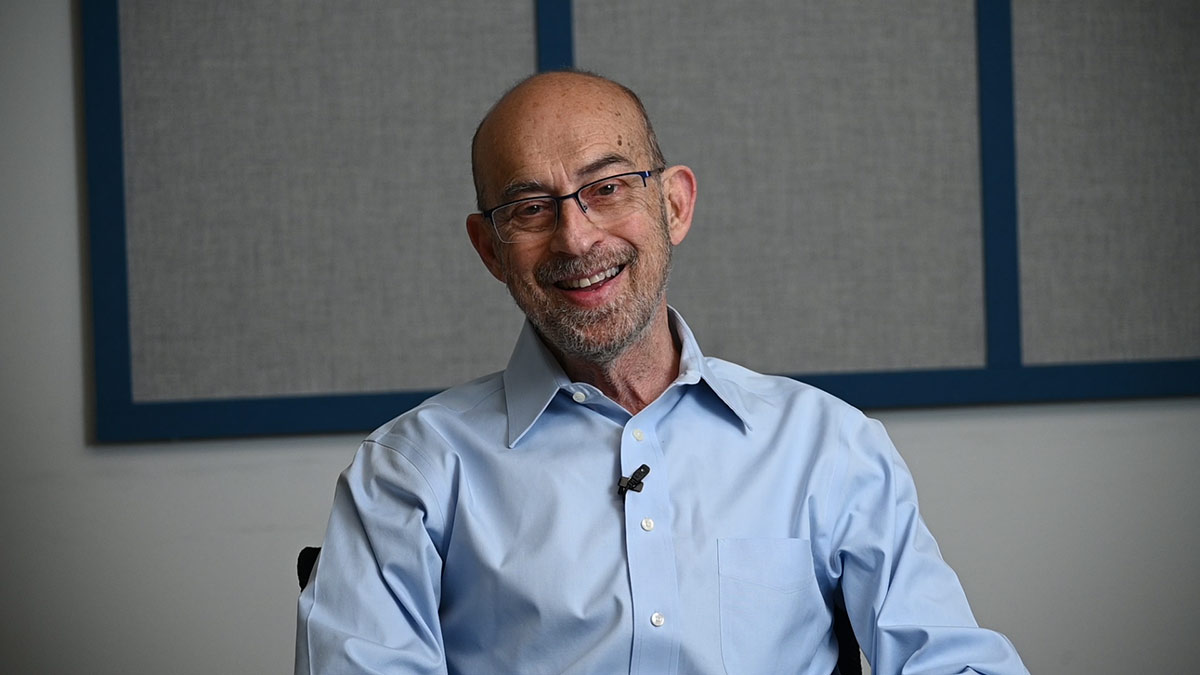What You Need to Know about Aspirin and Your Heart

Aspirin, like all medicines, has many benefits, but also some risks. Dr. Steve Nissen, Chief Academic Officer for Sydell and Arnold Miller Family Heart, Vascular and Thoracic Institute, answers who should take aspirin, who should not, and what the current recommendations are.
Learn more about heart, vascular & thoracic health and prevention.
Subscribe: Apple Podcasts | Buzzsprout | Spotify
What You Need to Know about Aspirin and Your Heart
Podcast Transcript
Announcer:
Welcome to Love Your Heart. Brought to you by Cleveland Clinic Sydell and Arnold Miller Family Heart, Vascular and Thoracic Institute. These podcasts will help you learn more about your heart, thoracic and vascular systems, ways to stay healthy and information about diseases and treatment options. Enjoy.
Steven Nissen, MD:
I'm Dr. Steven Nissen, and I'm a cardiologist here at the Cleveland Clinic and I think many of you've heard that aspirin has been in the news again. And it's important that we understand what exactly the newest recommendations tell us. Who should take aspirin and who shouldn't?
Steven Nissen, MD:
Let's talk about who should be taking aspirin. And we're talking about a baby aspirin a so-called low dose aspirin, that 81 milligrams is the size. If you have had a heart event, a heart attack, a stroke, if you've got peripheral arterial disease, disease in the arteries in the leg or the neck and the carotid arteries, if you've ever had a stent placed, these are conditions that we call secondary prevention where you've had something happen and you don't want it to happen again. And virtually all those people, unless they have a very, very high bleeding risk should be taking aspirin. That's easy. It's particularly true if you've had a recent heart attack where aspirin is a particularly large benefit. It's also true that if you have chest pain that you think is a heart attack, that we recommend that you chew a full-size 325 milligram aspirin after you've called 911.
Steven Nissen, MD:
Who shouldn't take aspirin? Most of the available evidence suggests that people at low to moderate risk who've never had a heart event, maybe you've got some risk factors, some high blood pressure, maybe your cholesterol is high, but you've really never had anything seriously happen to you in the heart or vessels of the neck or brain, you really shouldn't be taking aspirin. And the reason why is there's accumulating evidence that the risks of aspirin are not trivial, bleeding in the gastrointestinal tract in the stomach is common and even bleeding into the brain. And those bleeding risks tend to counterbalance the benefits that you might have at reducing the risk of a heart event.
Steven Nissen, MD:
So, if you're one of those people that really has never had an event, then taking aspirins is not a good idea. There is a small group of people that have never had a heart event that should take aspirin. And those are people that have very high risk. And we're talking about greater than a 20% risk of a heart event in the next 10 years. Typically, that's somebody that's got a strong family history, lots of risk factors, including high blood pressure, high cholesterol, maybe smoking. If you're one of those people whose risk is super high, then aspirin may be indicated.
Steven Nissen, MD:
What's important is that you talk to your doctor if you're not sure. The best advice you can get is from the person who knows you the best and that's your regular doctor, your primary care provider or your cardiologist. Those individuals will understand your risk. They will understand the benefits and the risks of aspirin, and they can counsel you about what to do. My advice would be before you start taking aspirin, unless you're somebody for whom it's been prescribed by a physician, if you really aren't sure what to do, talk to your doctor and really talk to your doctor under almost any circumstances except those in which the aspirin has already been prescribed by a physician. In that case, it's very reasonable to keep taking aspirin.
Announcer:
Thank you for listening. We hope you enjoyed the podcast. We welcome your comments and feedback. Please contact us at heart@ccf.org. Like what you heard? Subscribe wherever you get your podcasts or listen at clevelandclinic.org/loveyourheartpodcast.

Love Your Heart
A Cleveland Clinic podcast to help you learn more about heart and vascular disease and conditions affecting your chest. We explore prevention, diagnostic tests, medical and surgical treatments, new innovations and more.


